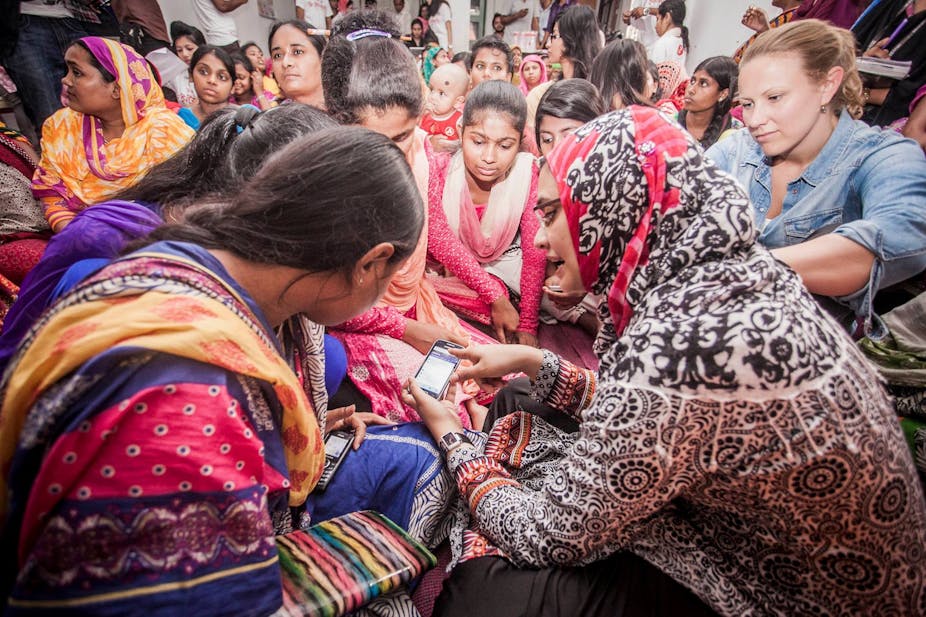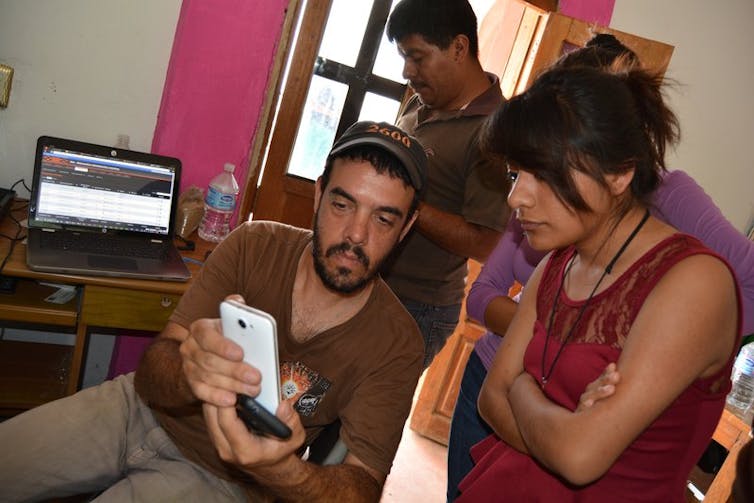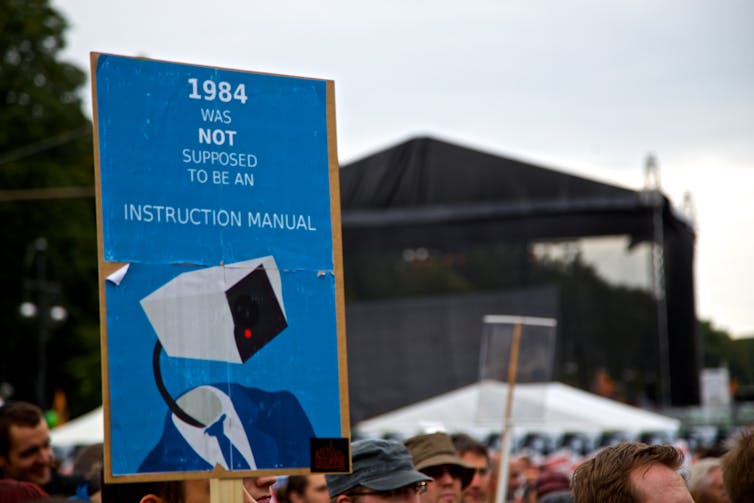
EU leaders need to find the courage of unity to manage migration, which has the potential to help the EU economy grow more than expected. But the window of opportunity is closing fast, William Lacy Swing said in an exclusive interview with EURACTIV.
William Lacy Swing is the Director General of the International Organisation for Migration (IOM). He is a diplomat and a former United States ambassador, and a United Nations special representative of the Secretary-General. He spoke to EURACTIV’s Editor-in-chief Daniela Vincenti.
At the upcoming EU summits in February and March, migration will be on top of the leaders’ agenda after failing to reach an agreement in December. What do you think the EU should do to find common ground to solve the emergency, because there is still an emergency, although the numbers are going down?
It is not a migration emergency it’s a political emergency because the numbers are such that if there were a comprehensive European Union plan, the numbers would be manageable.
This is the elusive plan and I give great credit to the European Union and the Commission that are working on it. The leadership is trying to move this forward but there’s such disunity within the Union, among the 28 countries.
In the absence of a plan, they will continue to look at stopgap measures that simply cover the immediate term but don’t project into the future and consequently therefore are unable to build back trust with the people.
The problem is the people in all EU countries have lost confidence in the leadership to manage the question of migration.
So what kind of plan would allow rebuilding trust and confidence?
First of all, there needs to be some agreement on a comprehensive long-term multifaceted policy on migration and asylum that would allow everybody to take the same point of view.
For example, you had 1.5 million migrants who came north in 2015-2016, that is less than 1.5% of Europe’s population, in other words that would have been a manageable number. Secondly, one needs to be more resourceful and creative in the use of migrant policies.
By that I mean that some could qualify for temporary protective status because their country is in turmoil and they can’t go back safely. Some want to reunite with their families, and that should be welcome because people who have their families with them are more stable than those without their families. Some are victims of trafficking who need support.
Some are economic migrants who may or may not find jobs in the job market. And those who don’t and want to go home, the IOM will take them home for you. We took almost 100,000 of these migrants home last year, 54,000 from Germany alone.
That’s always an option. And they will go back with some money in their pockets so they can start their life again and reduce the possibility that they’ll come back illegally. They are going back with some dignity.
And how do you reduce the chance that they will come back?
Well, bear in mind, the ones that are coming regularly to Europe are not the poorest of the poor. They had enough money to make it to the Mediterranean and to pay smugglers. They probably took all their family’s savings to come in the hope that they’ll find work and can send money home.
The overwhelming majority of migration is taking place in a regular, safe and orderly fashion. Most people are moving without a problem. But you do have 66 million worldwide that are forced to move, about 24 million refugees and at least 22-23 million internally displaced people. The question is how do we deal with them. Surely, we should be able to come up with a policy that is both humane and responsible.
The deal with Turkey or the one that Italy struck with Libya are not really sustainable in the long-term. Or are they?
What everyone thinks about the measures is that they are working, in the sense that the Balkan route is now closed.
There’s been a bit of movement towards the western Mediterranean. The numbers in Spain have gone up, the numbers in the central Mediterranean have gone down and will likely continue to go down a bit. But you still have at least the same number of people dying relative to the numbers who attempt.
So last year was 5000, the year before was 3600, this year is already approaching more 1000, so that’s the tragedy.
What we need is to combine short-term, medium-term and long-term strategies. Our whole effort is related to saving life. That’s our concern. So, in Northern Niger, we’ve taken 8000 people back. We’re replicating that in very modest and modifying forms from Senegal to Cameroon and in other 12 places.
To pick them from the migratory route and, number one, warn them about the risk of smugglers and two to try to identify those who may have a claim to refugee status. Then we turn them over to UNHCR [The United Nations Refugees agency].
You also have a third group of economic migrants who get so far and then say “boy maybe I made a mistake”. To those we offer them the chance to go home voluntarily with some cash to show that they’re not failures.
What do you mean by cash. That will not give them enough not to try again?
It’s a small amount. Anywhere from about €1,000 to as high as €4,000. And now, increasingly, we’re trying also to help them to reintegrate because there’s a lot of hostility towards them when they go back. So we’re also providing some money to the home community.
Isn’t that a form of aid again?
Yes it’s a form of aid, absolutely.
But aid, we know, has not really helped. You need to invest in these countries so that jobs are created, so that people are going to find jobs?
Well, the money we’re giving to help stabilize the community also could help the creation of some jobs but obviously, that’s part of the development program that has to happen.
We’ve got to get much more serious about things like agriculture. You know, Africa should be the breadbasket for much of the world. But today with the way we’re educating people, nobody wants to do agriculture anymore. That’s why we’re trying to work with FAO [Food and Agriculture Organisation] to get youth back into agriculture. But this is going to take a lot of effort. This is going to take a real multi-layered effort by the community.
So the first step is to turn irregular migration into regular migration?
The first effort is to stabilise. The second is to break the cycle of irregular migration and then to…
Are we successful in that?
Well, marginally. We’re missing three things. We’re missing perspective. 1.5 million migrants is not a lot of people for 550 million Europeans. We never say anything in the media about it …the admiration we should have for the six neighbours of Libya and the four neighbours of Syria who kept their borders open at great cost. And a political cost too. You need to have that perspective. And you need to have policy.
Some EU leaders are not going to have that perspective, unless the problem is in their backyard. So how do you change the mindset?
It takes political courage. It takes political leadership. Leadership is all about doing the right thing and that’s exactly what Chancellor Merkel did. She did the right thing when she said refugees are welcome. I think she must have assumed that quite a number of the 27 would help out. It didn’t happen. Sweden helped out as long as they could, Austria for a very brief moment. Italy and Greece have their own problems. So, it would take much more unity within the EU than we have right now.
But quotas don’t work?
No. 160,000 for the relocation. What have we done up to now? 60,000 – 50,000 maybe? They didn’t fulfil their quotas, so even that small number, it didn’t work. And so you have a big division within Europe, between those who want to manage the problem and those who want to avoid it by building walls and gates, you can’t do that. So that’s policy. And you need to have a plan and implement it.
What plan? You obviously have an idea about this plan.
Well, you have to have a programme with public education and public information. You have to tell people about the demographic deficit.
You have to help these people understand why these people are coming, and what your programme is when they come.
Integration has been a big failure, throughout the world, including the U.S., including Europe. Most of the terrorist attacks in the big cities of Europe and the U.S were homegrown. Failed integration.
Immigration was a huge success for the U.S for many decades, and it has created the so-called melting pot. How come it doesn’t work anymore?
It does work. Overall, it is still working. Don’t forget that IOM with our partner UNHCR, we have taken 3.4 million refugees since 1980.
There’s not one public record of them ever committing anything approaching a terrorist act. And these are very good people. They actually sign a promissory note when they go. More than 90% of these refugees pay it back.
So, it’s a great thing for these taxpayers, it’s not a loss for us. It’s a gain for us. The sooner they get a job, the sooner they pay taxes. The sooner they become a citizen, the sooner they can vote. So, the political party should be courting these refugees. The McKinsey Global Institute, one of our partners, have come out with a major study on migration. 3.4% of the world’s population, international migrants, are producing 9% of global GDP. And that’s 4% more than if they stayed at home. So, they add to productivity, they bring you ideas, they’re motivated, they have to send money home.
They could go back home and bring progress to their country too…
Well, they could. There’s no problem. You can be fully integrated in a place like the U.S for example and still be a very active member of the diaspora, sending money home, going back during vacation, helping out a hospital or school, taking trade missions back.
The diaspora is the most neglected part of the whole migration policy. We have a program called RQN, Return of Qualified Nationals, we’ve taken almost 200 Somalis back to Somalia to help develop capacity in the government, private sector, and elsewhere, and it does work.
But you have to have a policy and you have to implement it. And then you have to give evidence to your people and show that the policy brings results.
But you said it needs political courage, it boils down to that. Europe at the moment fails at procuring the courage?
The thing is, we’ve got a long way to come back now, because it’s very hard for a politician to embrace migration too aggressively or vociferously, because it loses elections and it determines coalitions.
So, you have to start the process to make people understand, why it is in the people’s interest to welcome migrants. That’s what Canada’s doing now. They brought in 45,000. They prepared the terrain, they sent their Minister of Migration throughout the country to talk to all the governors, many of the mayors of the major cities to say, here’s your responsibility: shelter, language training, a job, security and to all of the community this is why it’s in your interest to receive these people.
And now, they have families who are very upset because their particular Syrian family hadn’t arrived yet. But I cannot compare Canada to Europe. It’s very different. They’ve got one border, the U.S.
There is a psychological element also, and I’m very sympathetic here. I’m simply trying to reason with them about ways to do it differently and something that would ultimately work politically very well.
Europe has peopled the world for three centuries. Europe has always been a continent of origin. Today, for the last three decades, it’s become a continental destination. Our people aren’t going out, but people are coming to us. They don’t look like us, they don’t speak as we do, they practice a different religion. Rather than saying, how can we manage diversity, we should begin to embrace it, because it’s good for us.
See the problem is the window of opportunity is very small. Because in 2019, Europe is holding the European elections, and there is a risk that the Eurosceptics are going to win big numbers in the European Parliament.
And unless leaders come right now, with some kind of solution, we’re facing a greater danger: a migration time bomb. Because it is a time bomb if you look at Africa and economic migration, rather than refugees. That’s the urgency of having a deal in the next six months.
Right now you have a window of opportunity because the story that appeared on TV about the slave trade has brought everybody together. Right now, the European Union and Africa are working very closely together to solve this slave problem.
They’re working with IOM primarily, but also with UNHCR and we’ve taken 20,000 of the detainees home. We’ll take the other 10,000 home before the end of February and we’ll continue to empty their defenses and try to close them all together to turn detention centers into open reception centers.
Do you think the UN process could push the EU to get its own plan, or is it wishful thinking?
I think the Global Compact on migration is one of the good things to come out of this. We probably wouldn’t have a global compact, if we didn’t have the European Union. We’d be in a crisis. There’s no question that it will be a much more level playing field once we get that signed in December.
*Originally published at: https://www.euractiv.com/section/development-policy/interview/mon-iom-chief-there-is-no-migration-crisis-but-a-political-emergency/





